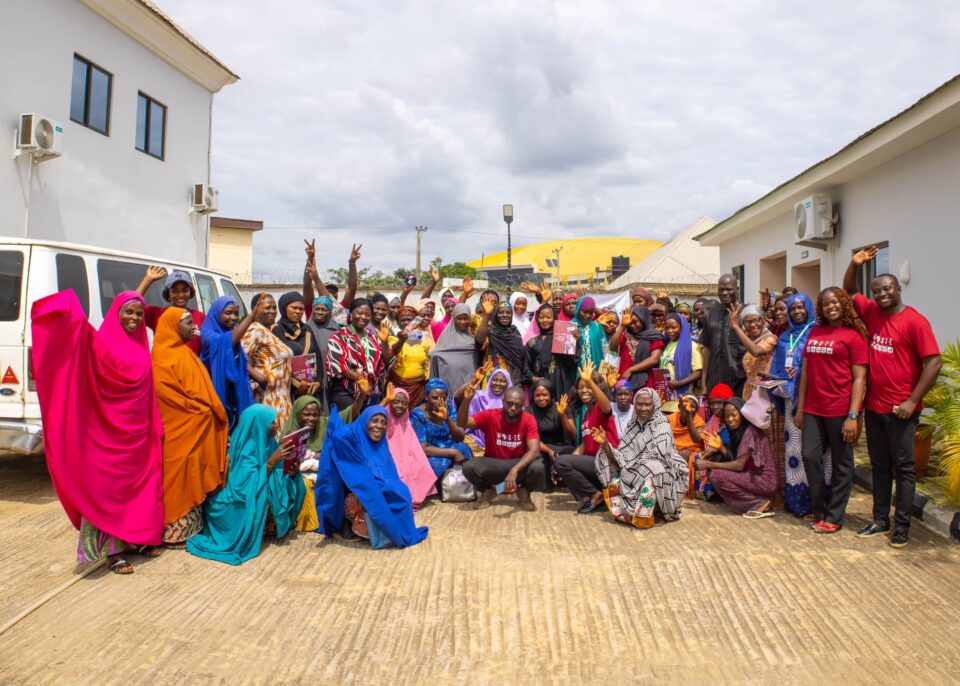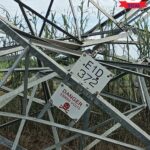By Chuks Oyema-Aziken
The Global Environment Facility, Small Grants Programme in Nigeria, GEF-SGP on Wednesday said it will continue to create awareness about plastic menace in the environment.
National Coordinator of the Programme, Mrs Ibironke Olubamise stated this at the review of the programme “Reducing Marine Plastic Pollution through Recycling” project.
The Marine Plastic reduction project is being implemented by the Initiative for Advancement of Waste Management in Africa (WASTE Africa), with the support of GEF.
The WASTE Africa/GEF-SGP programme has trained over five hundred women in various communities in the FCT to help manage and reduce marine plastic pollution in their various communities.
It aims to reduce marine plastic pollution in Lugbe and Gwagwalada areas, with a focus on Rupa River and Usuma River in the Federal Capital Territory.
Mrs Olubamise said that waste plastic has become a menace not only on the terrestrial environment, but also on the marine environment in the waters.
She also noted that the menace of waste plastic has caused dangerous havoc to the society and human health.
“One of what we do in our office is to support environmental initiatives, of course, from the GEF small grants program, we call it the small grants because the maximum amount for a regular project is about 50,000 US dollars. and so we support community environmental initiatives to address any of the focal areas of the GEF we have five focal areas of the GEF small grant, biodiversity, climate change, land degradation, chemicals and international waters.
“So this project, it falls under the focal area of international waters, plastic but targeting international waters. as you have heard in the presentation, we have two international waters in Abuja in a Federal Capital Territory, the idea is to reduce, create awareness about plastic menace in the environment how these plastics are finding their ways into the water bodies”. She said.
She said the idea of the program is to reduce, create awareness about plastic menace in the environment, and what can be done to reduce and manage the plastics as necessary.
Mrs Olubamise, further stressed that the program is also to incorporated skill building activity into the project to help the women.
“One of our strategy is to support pilot projects, when we support pilot projects, and we see the success stories, it is easy for the project to be either replicated or upscale so we also then share the information with other agencies, donors, governments, politicians that are interested, and when they are interested, well, of course, they can always replicate it in other places.
“We have seen several of our projects being taken over by embassies, by bilateral donors because they saw that, we have supported these people in only ten communities can we upscale it to hundreds communities, for example. So these are some of the strategy that we use for it to be sustainable and then to expand.” She explained
She noted that Global Environment Facility, GEF will continue to work and collaborate with the government to address environmental issues.
According to Mrs Olubamise, “in the marine it’s so difficult, number one, because of the peculiarity of the water body, and also because the animals in the marine, what we have found out is that they tend to ingest the plastic thinking that it is food, and we can see what happened in the Presentation inside, whereas a fish or two thought that he was eating, but he was actually eating plastic.”
The Prgram Coordinator Waste Africa Mrs Odhikori Juliet, said Marine pollution harms both land and sea creatures adding that the oceans could contain more plastic than fish by 2050.
She said creating the awareness became imperative, as this would help in 80% reduction in the volume of recyclable waste littering drainage system in the community.
“And how we wanted to do that was to start community led recycling programs from ten clusters, so we have five recycling clusters in Lugbe Area and five recycling clusters in Gwagwalada area.”
“We empowered over five hundred women to start collecting materials, So there are local recyclers who collect materials from their environment, plastics, cans, papers, every recyclable material, and then they earn money from it.” She said.
She said the goal of the program is also to introduce the women to the waste to wealth, opportunities for them to start source segregation of waste and recycling as a way to curb plastic pollution in the environment, entering, leaking into these water bodies that have major focus.
She said the program will also provide a sustained source of income for at least two hundred community members.
According to her, so far through the program, we’ve been able to support on boarded six hundred and forty five, women, and we have four hundred and sixty, of these women who are active recyclers. We’ve been able to empower four youths who are manning our recycling hubs, solar panel recycling hubs that we established in Lugbe and Gwagwalada area.
Speaking further, she said NGOs have collected over 50,000 kg of materials from the recycling efforts of these women, while also increasing their entrepreneurial capacity.
“So for us to do that, our focus was on skill acquisition, training, skills that they can learn, and then with little money, startup businesses. And we’ve been able to do training for three hundred women. Our target was three hundred women for these programs, and those have been done, and some of them have started businesses as well that ending them additional streams of income.” She said.
According to her, we are killing our marine life, and there’s also a research that shows that if we don’t manage our marine plastic Pollution now by 2050. We’ll have more fish more plastics in the river bank fish so that’s the cost of concern for us as well.
“Once plastics enters into the river, it takes a while to break down, but as it’s breaking down, it’s releasing microplastics. These microplastics are entering into that water body, people fish in those water bodies. So for some people, is a source of drinking water for them as well. So they are consuming those contents from the fish. They are consuming it from the water the microplastics. And there have been experiments that show that microplastics are harmful to marine organisms like some sea turtles, some fish, it’s been affecting their nervous system, but we don’t really know what it’s doing in our human bodies.”



